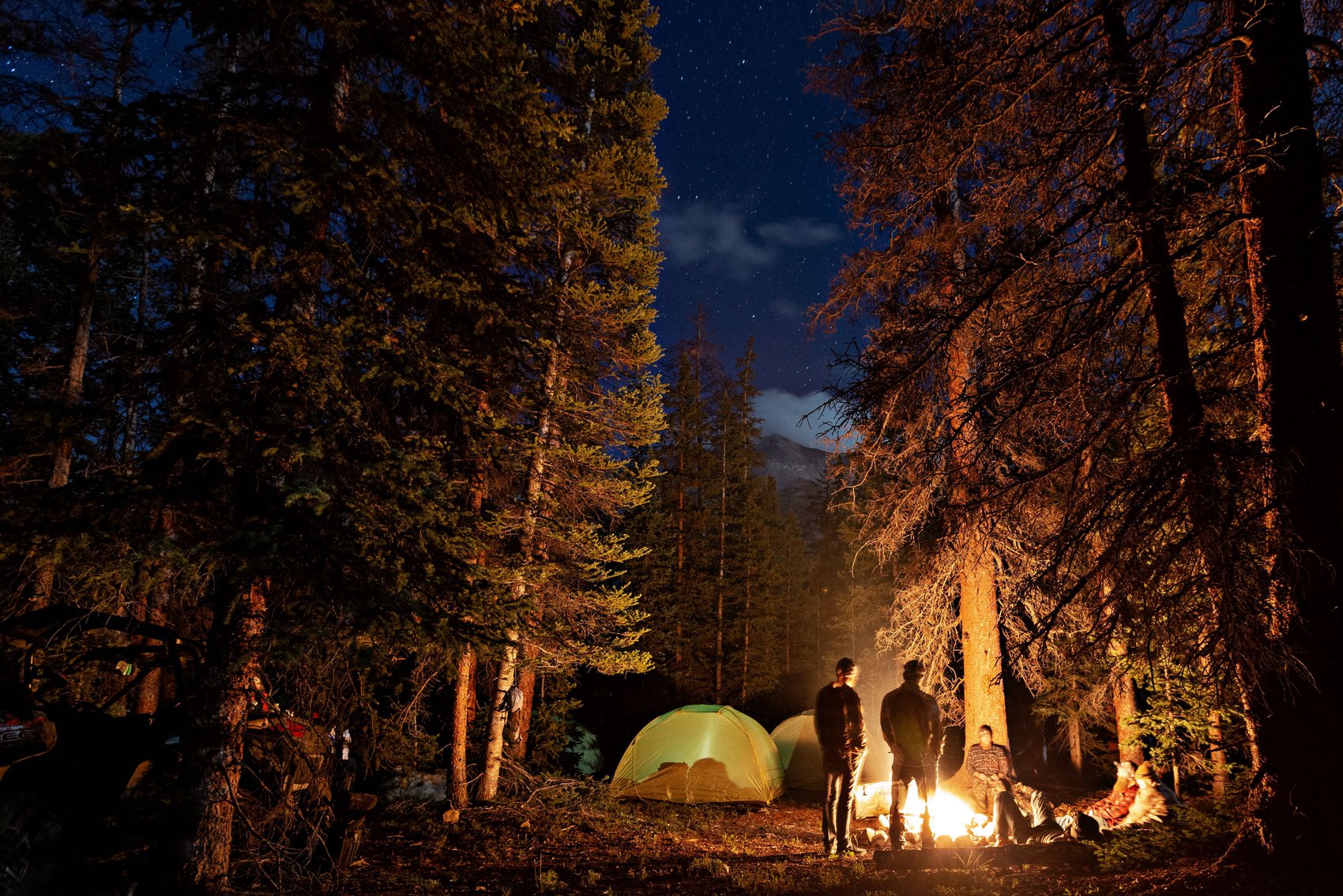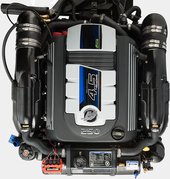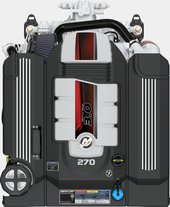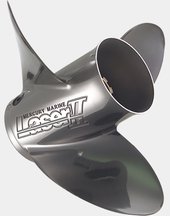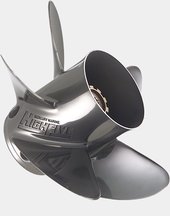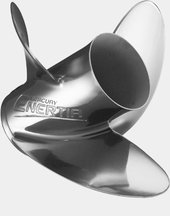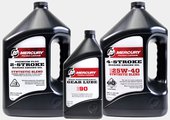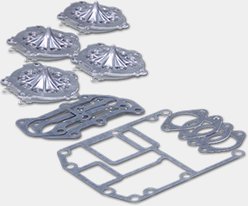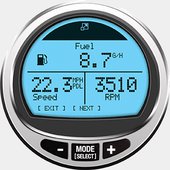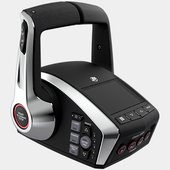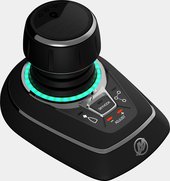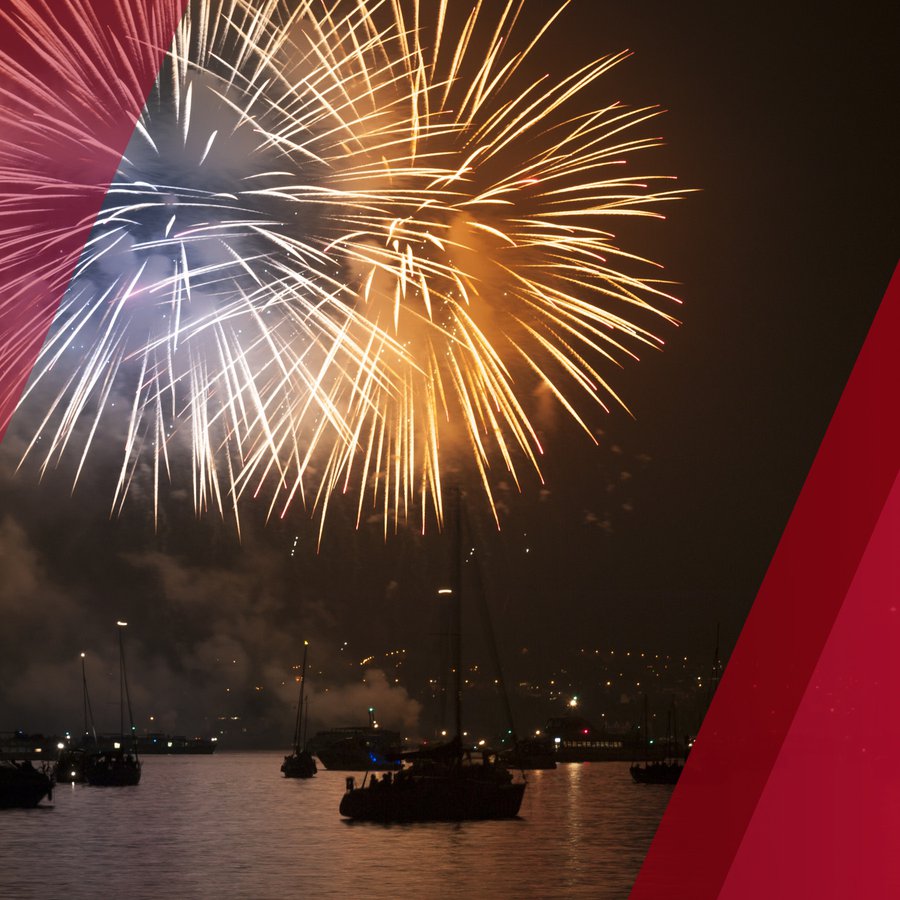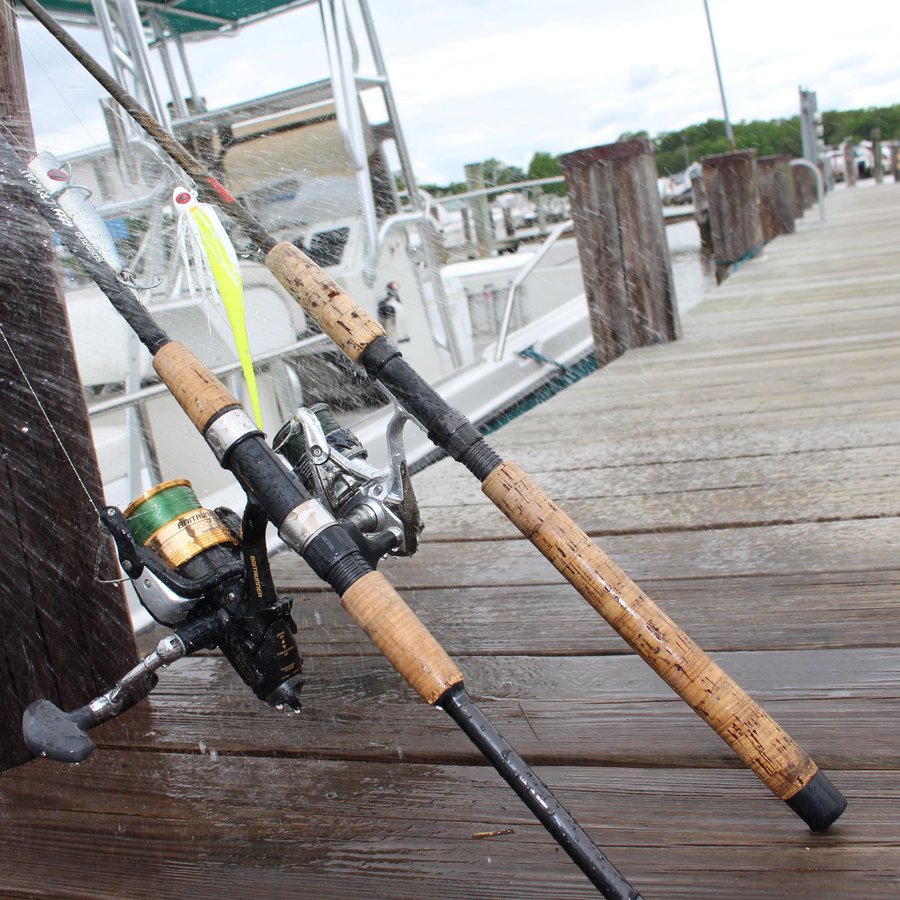Your boat is your sanctuary, both a mode of transportation and a destination all in one. So many times at the end of a great day of boating and relaxing on a remote shoreline with family or close friends, we find ourselves wishing it wouldn’t end. Imagining keeping the rest of the world at bay for a little longer.
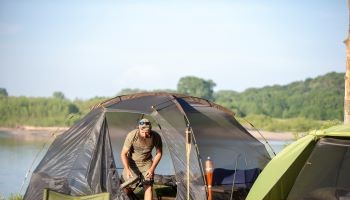 Well, you can. Camping by boat is not something most boaters have tried, but it’s gaining in popularity and it can give you the chance to extend your boating outing for as long as you want to unplug. It may sound a little daunting, but with a little research and preparation practically anyone in any type of boat can plan and execute a successful camping trip by boat.
Well, you can. Camping by boat is not something most boaters have tried, but it’s gaining in popularity and it can give you the chance to extend your boating outing for as long as you want to unplug. It may sound a little daunting, but with a little research and preparation practically anyone in any type of boat can plan and execute a successful camping trip by boat.
Blaine Garrett of Des Moines, Iowa, is an avid outdoorsman, angler and hunter with many camping by boat trips under his belt, many of them up to a week long with up to eight people participating. Garrett said he loves many things about camping by boat, but one aspect in particular stands out.
“Most of the time you can get to some really awesome and obscure places that are in the middle of nowhere,” he said. “And anytime you’re on water, next to a river, it’s always cool, no matter where you’re at.”
Where to Go
To get started, you’ll need to first decide where you want to camp. In coastal areas, it may be an uninhabited barrier island or remote area of the estuary. If you’re inland the prime spots might be an uninhabited shoreline in a cove of a lake, or the bank of a less-traveled section of the river, far from the boat ramp. You can ask friends for recommendations, but the internet can also be a wealth of information. In any case, you need to do your research so you don’t inadvertently find yourself on private or otherwise restricted land. State parks and other public lands may require a camping permit and/or an advance reservation, so make sure you know exactly what you need well before the trip to avoid last-minute snags.
But whether it’s across the lake or miles upstream, you’ll want to look for a smooth, flat spot fairly close to the water, and ideally in or at the edge of the trees. Look for a spot that is grassy and free of rocks. This will give you shade from the daytime heat, a bit of shelter from storms and anchor points for hanging up a camp shower or anchoring a tarp. For a group of four campers, you’ll want at least a 20-foot by 20-foot area.
Camping Gear
Have all your gear picked out and tested well in advance. Because you’re traveling in by boat you’ll have the luxury of bringing a lot more with you than you would if you were backpacking or using a four-wheeler, but you don’t want to overdo it.
“Bring everything you need but nothing you don’t,” Garrett said. “But you always start with the critical things you’ll need for any type of camping: You’re going to need shelter, you’re going to need water, and you’re going to need food.”
For one or two people spending just a night or two, you can get by with a rather Spartan setup if you so choose – a small tent, bedrolls, gallon jugs of water, a cooler, non-perishable food, etc. For that kind of arrangement, you could get by with few hundred dollars worth of gear when buying new. If you have a larger group, are staying several days, and/or want a higher degree of comfort and convenience, you’ll have to buy and bring a lot more. A more enjoyable experience for a four-person group might include a couple of tents, folding tables, camp chairs, cots, sleeping pads, lanterns, propane cannisters, a camp stove and various cooking and eating paraphernalia.
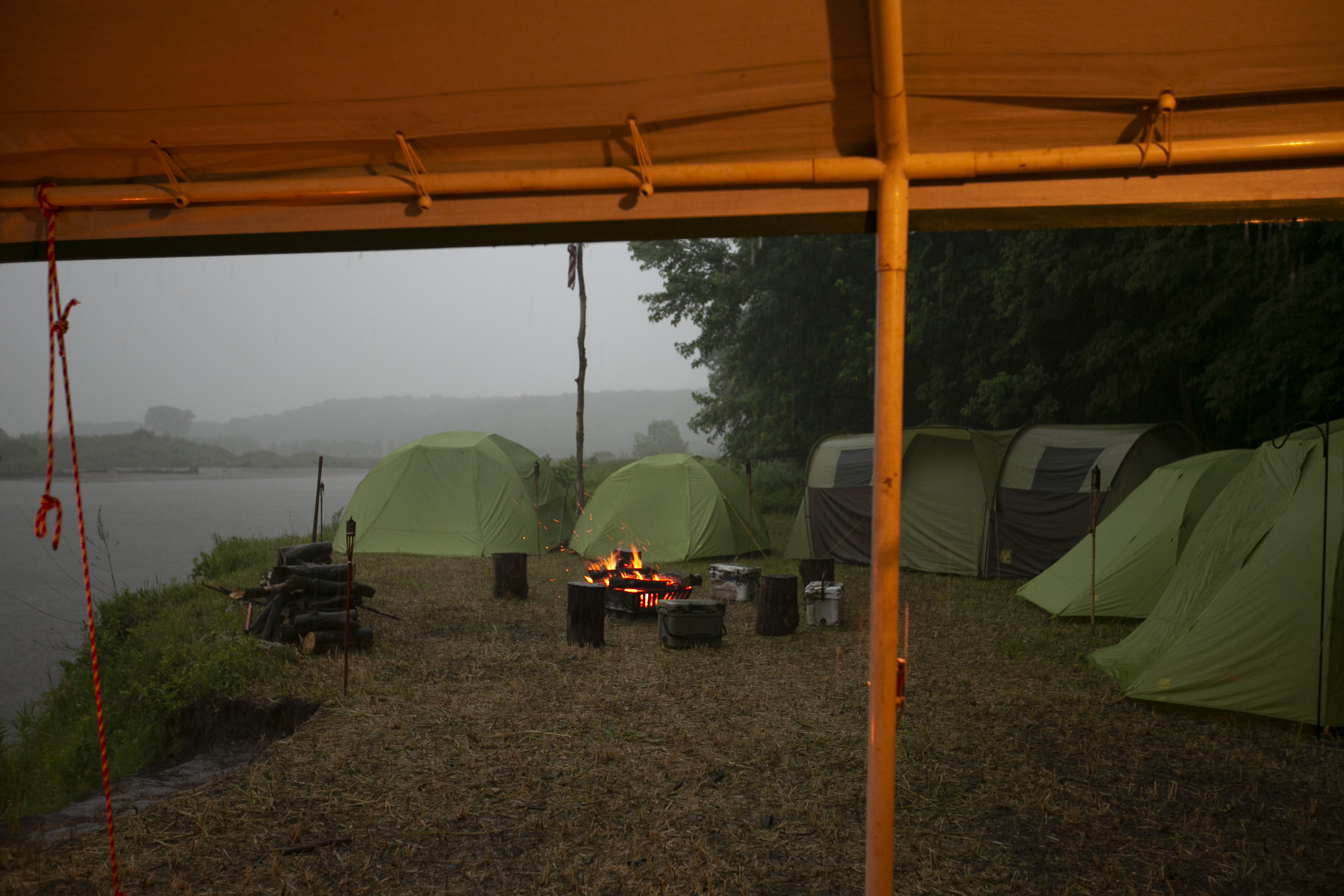 As with anything, the sky’s the limit on what you can spend, but Garrett said you can often find very good deals on gently used gear on Facebook Marketplace, Craigslist, etc. Just be sure to utilize no-contact transactions to avoid exposure to COVID-19 and thoroughly clean anything you buy used according to the Centers for Disease Control guidelines. Once purchased items are disinfected, test everything out to ensure that it’s all complete and functional.
As with anything, the sky’s the limit on what you can spend, but Garrett said you can often find very good deals on gently used gear on Facebook Marketplace, Craigslist, etc. Just be sure to utilize no-contact transactions to avoid exposure to COVID-19 and thoroughly clean anything you buy used according to the Centers for Disease Control guidelines. Once purchased items are disinfected, test everything out to ensure that it’s all complete and functional.
Then of course you’ll need things to support your daytime activities, be it hiking, fishing, hunting or just lounging around. Garrett also brings tiki torches to place around the perimeter of the campsite as well as citronella candles to help ward off insects.
Choose your tents wisely, Garrett said, and don’t believe everything you read on the box.
“People think ‘oh, I’ve got a six-person tent and there’s six of us, so that’ll be perfect,’” he said. “If you do that you’re going to be sorely disappointed. You can only get about four small people in a six-person tent. A rule of thumb is to take the number they say a tent can hold and cut that in half.”
Food and Drink
Plan your meals and carefully calculate how much food you’ll need, and have a good variety of fresh, frozen and canned items. Thoughtfully pack your cooler in the order the items are to be used if at all possible, Garrett recommends.
“Packing a cooler is an art in itself,” he said. “You don’t want to be digging to the bottom of it on the first day. You want to mindful of how you do it so you’re not rummaging around every time you need something.”
If you have a large rectangular cooler you can put all of the frozen items and some dry ice in the very bottom for a makeshift freezer, and top those items with a carefully fitted piece of two-inch rigid foam insulation from a home improvement store. Above that you would place all the food items you’d normally refrigerate. This arrangement will keep your frozen goods frozen for as long as possible, and keep your vegetables, condiments and such cool without freezing. Drinks should be stored in their own dedicated cooler.
Garrett said you should also do all you can to avoid attracting unwanted guests to the campsite.
“We put all of our dry foods – cereal bars, snacks, etc. – in a dedicated cooler without ice,” he said. “That keeps the bugs and the raccoons out. Everything else is sealed in the food cooler. We also wash things and keep pretty tidy to keep down on any smells that bring in the sneaky little beggars and thieves who are looking for a free meal at night.”
Water of course is vitally important. The rule of thumb is that each person should drink at least two liters of water per day, but that can go up dramatically in hotter climates or on days of strenuous physical activity. A water purification system – one that you can top off periodically so you have access to several gallons of clean water at any given time is an excellent investment that will enhance your camping trips for years to come. Remember, dehydration must be avoided above almost all else, so whether you pack your water in or purify water on site, don’t underestimate your needs.
Safety
One could go on and on about what you need to do to camp safely, but here are a few musts:
- Let someone trusted know where you are going and when you will return. If you were to get stranded somewhere without cell service, it will be good to know that someone will soon come looking for you.
- Carry a robust first aid kit that includes an assortment of bandages, antiseptic, a tourniquet, an Ace bandage and tape. You should also pack – in a sealed container – a good selection of over-the-counter medications such as antacids, pain relievers, antihistamines and something for gastrointestinal distress. A minor medical issue will barely affect the trip at all if you’re prepared for it, but it can be disastrous if you’re not.
- It’s good to step outside your comfort zone, but use good common sense and discretion. Don’t take unnecessary chances and don’t tackle a trip deep into the wilderness unless you have the experience, equipment and support to safely do so.
- Study the seasonal weather patterns in the area in which you intend to camp so you’ll know what to expect, and monitor the forecast closely before and during your trip. Heavy rain, high winds and hail will not only make camping very uncomfortable, they can be dangerous. If inclement weather threatens, don’t be afraid to postpone or cut short the visit.
 Your Boat
Your Boat
Your camping trip should be planned with your boat in mind. Sandy beaches with deep water nearby are accessible in practically any boat, while a trip upriver into skinny water may require a shallow-draft aluminum boat with a small outboard or even a Mercury Jet Outboard. In coastal waters, know your tides and plan accordingly so you aren’t high and dry when you’re ready to leave.
Whatever boat you take, make sure you bring plenty of fuel, spare fuses, engine oil and a basic tool kit. If your boat is propeller-driven, packing a spare prop and hub, as well as a prop wrench, is a great precautionary measure. If your campsite is a long run from the launch point, be mindful of your fuel consumption and set your throttle for comfortable, efficient cruise speed so you don’t find yourself worrying about running short of gas.
Both boat and engine should be in good repair, well serviced and reliable. Remember, safety is often directly related to preparedness, so if anything is questionable, get it fixed before planning a trip.
Conclusion
This is just a brief introduction to camping by boat, but hopefully it will get you thinking in the right direction. You don’t have to embark on a weeklong, multistop odyssey for your first trip – or ever, if that’s not your thing – but a night or two under the stars, far enough from civilization but not too far, might add a whole new dimension to your boating repertoire. Even if you’re a seasoned camper via hiking or ground transportation, camping by boat can offer new experiences.
“The most rewarding part of camping by boat is that you truly feel like you are in your own little world and it’s very, very rare that you see another human being,” Garrett said. “Nothing really beats being able to walk down on the beach of a river with your favorite drink at the last hour of the day when everything is beautiful. The campfire is going and everybody's got a smile on their face and you feel like your own you're in your own little world.
“It's really a hard thing to describe until you're in it and once you’ve felt that it's a drug that will keep you coming back.”
